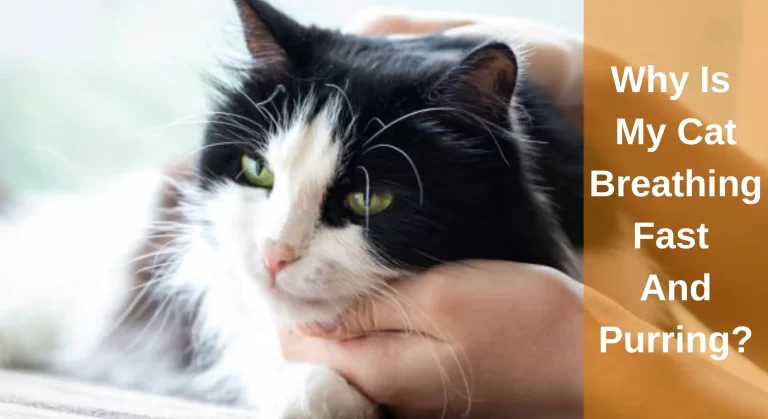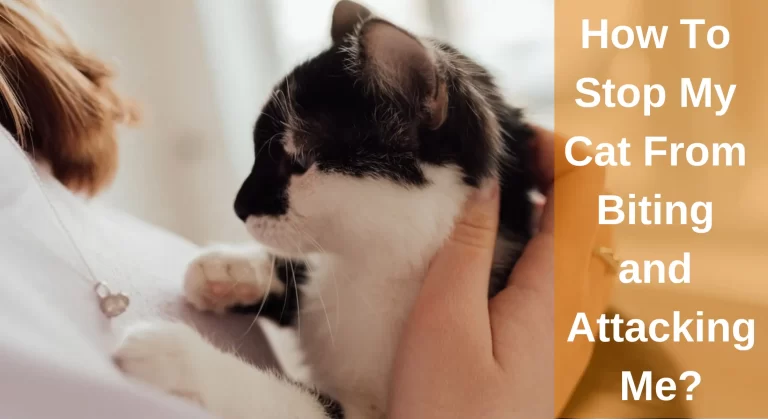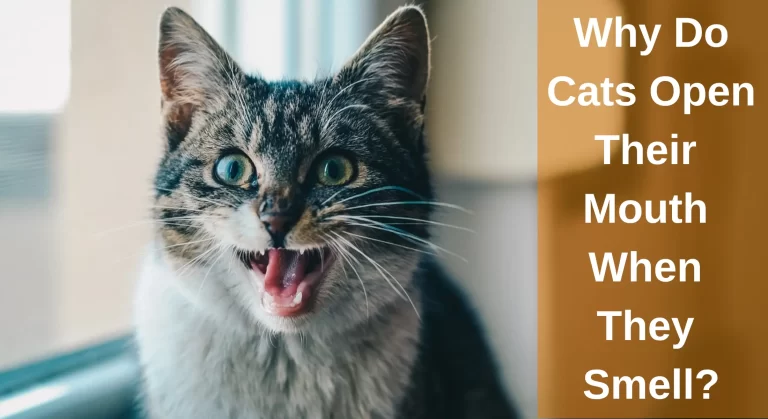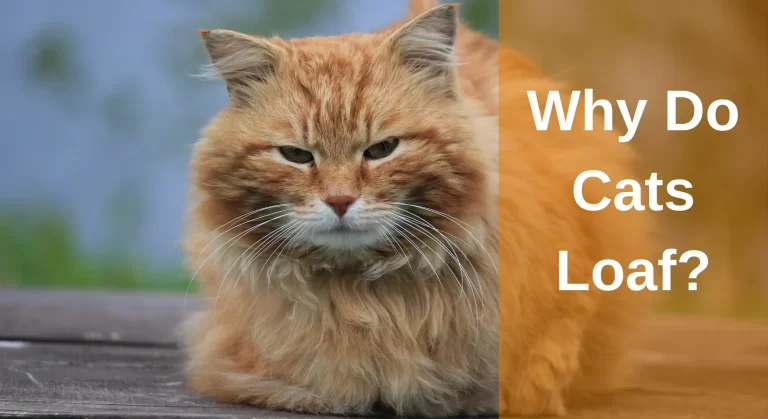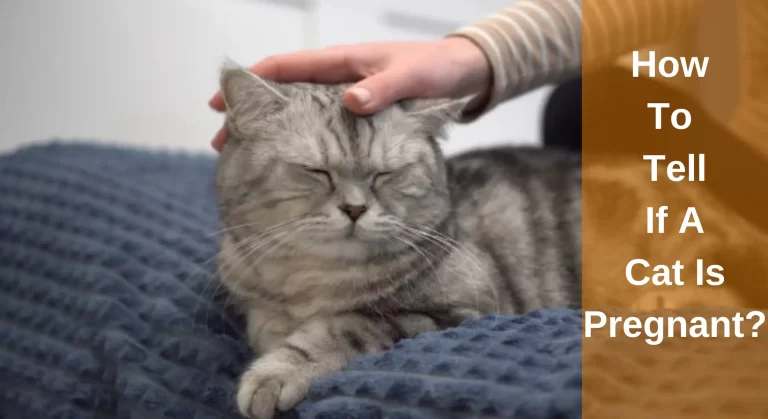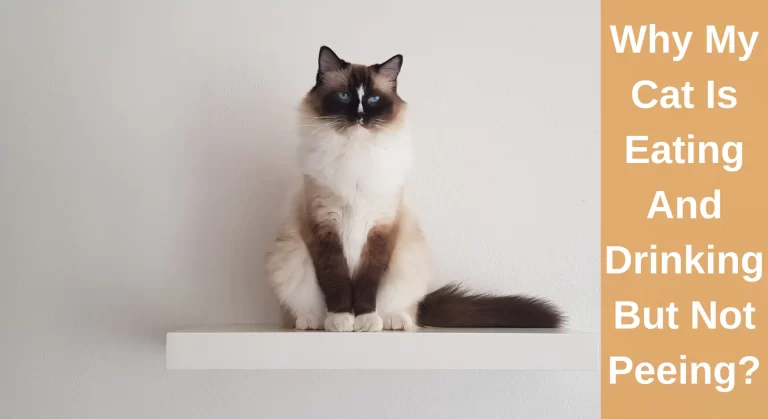Why Does My Cat Drool When I Pet Him? All You Need To Know
Have you ever spent time petting and affectionately stroking your feline and suddenly got your hands damp with her saliva while petting beneath her chin? This drool may appear a lot sometimes; it may form a river. But other times, there isn’t any drooling while you pet your cat. Most of you might wonder Why does my cat drool when I pet him? and what the connection is between drooling and petting is.
When you’re petting your cat, its muscles become relaxed, and your cats feel happy. This physiological and emotional stimulus triggers the cat’s drooling behaviour. Normally this behaviour is fit for a cat’s body. But if your cat suddenly starts to act weird and drool while you pet her, it’s a red flag. As drooling is connected with your cat’s emotions, stress, anxiety, and other health issues also makes your cat drool.
Drooling may appear alarming for most cat owners. So, if you’re one of them and are curious to know more about when a cat’s drooling signifies joy or stress, this post is for you. Continue reading it to know all the interesting facts and reasons behind cats’ drooling.
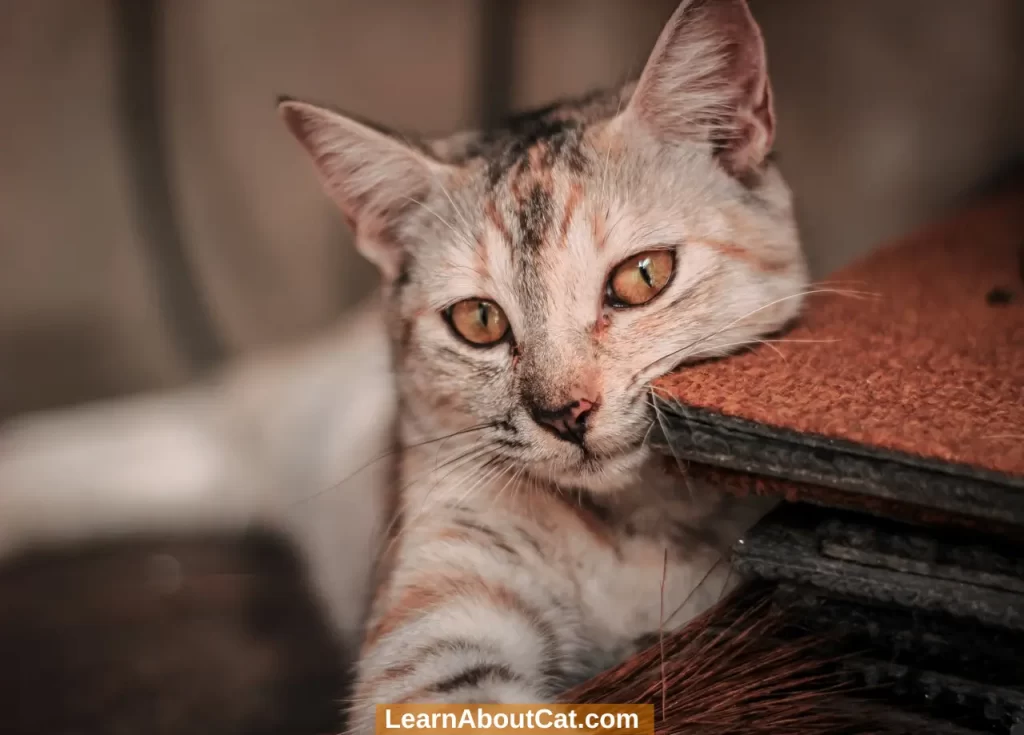
Why Is My Cat Drooling?
It may be due to oral disease and dental deterioration as well.
Drooling is a common symptom of oral disease or dental decay in cats. The buildup of tartar can irritate the inside of your cat’s mouth and cause pain, odour, and irritation. While you look for this, gently pull your cat’s lip back to display its teeth.
Many different creatures, including humans, frequently drool. Drool, after all, is actually saliva, a digestive fluid that arises from our salivary glands and collects in our mouths.
Drool is produced when saliva accumulates to the degree that it begins to flow or leak out of an open mouth. When someone uses too much novocaine or when they are sleeping, this typically occurs. However, dogs and cats are not the same.
Because there are four pairs of salivary glands and certain dog breeds are inclined to drool, both genetics and physical characteristics. Cats, meanwhile, have five salivary glands despite having fewer than dogs.
Cat drooling fall into three groups:
- Pathophysiological disorder: that causes swelling, discomfort, or difficulties swallowing.
- Irritation: The cat is trying to “wash away” his annoyances.
- Emotional reactivity: Most drooling is infrequent and doesn’t result in much saliva.
Reasons Why Does My Cat Drool When I Pet Her
Whenever you pet adult cats, they may drool as a sign of relaxation, sleeping, or enjoyment. Simply put, it refers to a physiologic reaction to intense pleasure or rest. After a good scratch, a little kitten may spit, which might be an emotional or physical reaction to the stimuli. Additionally, drooling may be a sign of a medical issue. The following are some typical reasons why your cat may drool while being pet:
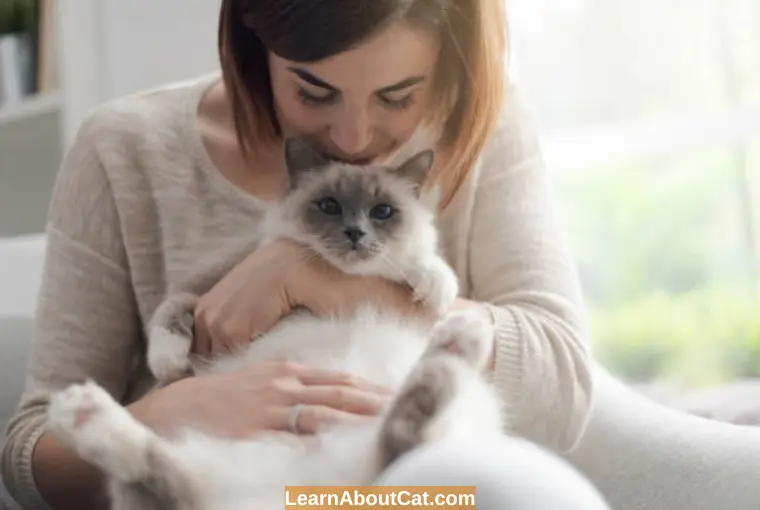
1. Dental Disease
Dental illness is one of the conditions that can irritate the mouth. In certain circumstances, drooling is an effort to soothe or reduce tongue or throat irritation.
Dental issues can result in excessive drooling. Cats older than three years old typically have dental or gum issues in the range of 85%. The resultant saliva smells unpleasant.
2. Mouth cancer
Oral malignancies are significantly less prevalent in cats than dental or viral diseases, although they can develop anywhere from the tip of the tongue to the back of the neck in certain cats.
Numerous conditions can induce excessive and persistent drooling. This is a sign that your cat needs a thorough checkup from your veterinarian, with a focus on any potential issues with their dental health.
3. Respiratory problems
Respiratory tract infections that result in chronic ulcers in the feline mouth are another cause of their drool. Drooling excessively is a typical symptom of several respiratory conditions.
The kitten could drool if it encounters a strange object. The drool may be the felines’ effort to “clean it out” if they accidentally swallowed a metal piece safety pin, a tiny fishbone, or even a stalk of grass. Felines may drool when they are trying to vomit up a foreign object that has been stuck in their stomach or throat.
4. Nausea
Organ dysfunction and exposure to certain toxins can trigger nausea, which ultimately then results in drooling. Only your veterinarian should deal with an infection.
However, you can take measures to keep your feline from having one: Maintain their vaccination records, keep them inside and isolated from all other cats, and rinse your hands after handling each animal.
You alone are aware of your cat’s typical behaviour. Drooling indicates that your cat may not be feeling well. If a cat is unwell, it will salivate a lot. Your pet’s stomach may get irritated by several chemicals, including flea medication.
Inform your veterinarian if anything unusual occurs for more than 24 hours, if they look anxious, or if they skip meals and play as normal.
5. Trauma
Cats may drool as a consequence of a traumatic injury, particularly one to the head or face. The majority of injuries require veterinary care; therefore, if your pet cat is in discomfort, is yowling persistently, or is drooling, it seems to be time to consult a veterinarian.
Cat acne, which is an increased production of keratin, a specific protein found in the skin’s epidermis, can give the impression that your feline is drooling, particularly when attempting to wipe it away. Your cat can drool as a result of the itchiness if, somehow, the blackheads turn into pimples.
Also Read: What Are Emotionally Traumatized Cat Symptoms
6. Stress
Tension and anxiety are other frequent causes of increased saliva production and drooling in felines. Because these factors lower an organism’s immune function, they frequently encourage the development of numerous diseases or show their symptoms.
Cats under stress tend to be more aggressive or active and more likely to acquire compulsive behaviours. Stressful environments and scenarios might impact their hunger and digestion systems. In these circumstances, you ought to be aware of what to do when your cat is anxious.
You can better comprehend how your feline is feeling if you are able to see the signs of stress and worry. Significant symptoms include increased vocalization, more frightened or combative behaviour, and infrequent drooling.
When cats are aroused, they may even breathe through their lips. Identify the stress source as soon as you can if you see any signs, and then get in touch with your veterinarian right once to talk about potential diagnostic procedures and treatments.
Check Out: Why My Cat is Hiding And Acting Weird?
7. Catnip
Drooling may also be a result of giving your feline catnip. However, not all cats react to the chemical components of catnip, the ones that do appear to appreciate it.
It’s possible that your feline is drooling for another cause, as only a tiny proportion of cats tend to experience this physical reaction. Every cat is unique and will react to stimuli uniquely.
8. Cat is Afraid
Cats may momentarily drool during stressful or frightening situations, such as vehicle journeys, doctor visits, or noisy events. It’s an excellent idea to discuss possibilities with your veterinarian if your pet cat consistently exhibits signs of high stress.
There has been generally no reason to be worried if the anxiety and drooling are transient and go away completely on their own.
9. Your Cat is Happy
Your cat is happy and at ease among their favourite persons, which makes them drool while being petted. Stimulation for pleasure, such as rubbing, can lead to excessive salivation and dribbling.
Additionally, felines’ body muscles—including those that keep their tiny lips closed—relax when it’s relaxed and receive strokes. Think about how some individuals dribble while they are asleep since that is when human bodies are relaxed.
If you’re unsure whether the feline is drooling while it’s pleased, there really are a few other indicators to watch. If you see any of the following signs in addition to caressing, drooling, and growling, then understand that your cat is happy.
Also, Check Out: Why Is My Cat Drooling But Acting Normal?
10. Foreign particles
A foreign object can occasionally cause excessive drooling. Cats have been known to ingest small objects like fish bones, needles, rubber bands and grass, which then end up in their mouths or oesophagus. But because swallowing hurts, the cat won’t do it correctly. They could try to puke or scratch at their lips.
When cats are happy, they may drool. She could roll around, purr, rub her face on yours, and drool (true for some cats).
Why Does My Cat Drool Excessively?
Given the reasons indicated above, it is quite OK for a cat owner to pet her cat and makes her slobber. The next time you touch your cat and see a small amount of saliva, especially if they are drooling while purring, you could feel more at peace. Your cat may be drooling as a consequence of stress, but after the unpleasant incident has gone, this will stop.
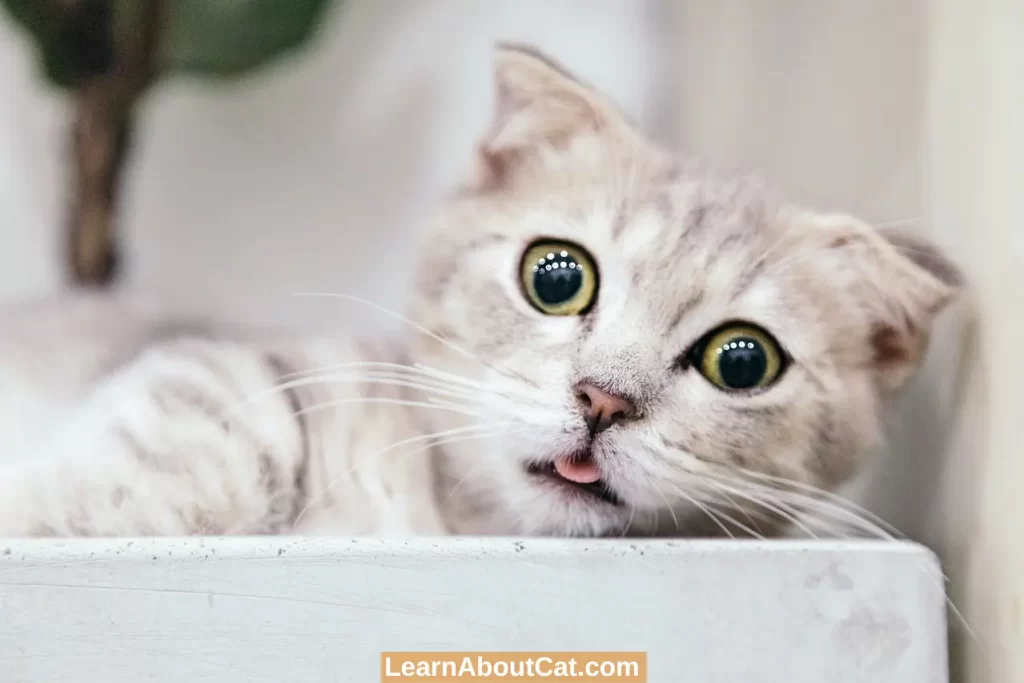
Drooling may be an indication of an illness or injury if you see your cat drooling frequently, not only when you pet her. In these situations, your cat commonly feels oral pain, which naturally causes excessive salivation.
Cats can get sick at other times and suffer nausea. Cats naturally spit more when they are unwell, as previously mentioned. This is because saliva may thin down vomit and make it easier to evacuate. A buildup of saliva in the mouth and excessive drooling may also occur in sick cats because they may not swallow as much.
Drooling is a symptom of a number of ailments, including the ones listed below:
- The percentage of elderly cats with dental issues might reach up to 85%. Gingivitis is the first stage of the ailment, which causes your cat’s gums to swell and itch as a consequence of plaque accumulation. Following that, the illness continues to harm ligaments, tissues, and teeth.
- Similar to cold in humans, an upper respiratory infection (URI) affects the upper airways of cats. Mouth ulcers might include symptoms including oral soreness and drooling, which can also be a warning. Slobbering is more likely a result of congestion and breathing via the mouth.
- In addition to viruses and bacteria, GI tract disorders can result in gastrointestinal infections. These disorders bring on vomiting and diarrhoea because they enlarge the stomach and intestines. Nausea may cause drooling.
- Anything your cat ate may have resulted in a gastrointestinal blockage. For instance, leftover pieces of string or ribbon from their favourite toys. The foreign material in these circumstances also causes nausea and drooling.
- Cats regularly gain access to areas where they shouldn’t, and consuming toxic substances can cause poisoning. There may be harmful compounds everywhere in our homes, including some houseplants, onions, garlic, cleaning products, and more. This will cause extreme stomach pain, nausea, and drooling.
- In addition to medical conditions, oral injuries can also cause drooling. Your cat could damage itself by biting down on anything pointy or by tussling with another animal. The visible wound may make it unpleasant for your cat to keep her jaws closed.
When Should I Call My Vet About Cat Drooling?
Cats may drool for a variety of reasons, ranging from “no cause for worry” to “serious medical issue,” but it’s best to stay on the safe side. If the drooling lasts for more than a few minutes or occurs regularly, it’s time for a vet checkup.
Drooling can be a sign of a number of medical issues, so it’s important to know when to call the vet. The likelihood that your cat will fully recover from illnesses or abnormalities increases the sooner they are diagnosed. Since cats generally dribble when they are happy to be caressed, you can interpret them as expressing their love and loyalty.
However, if your cat drools a lot and frequently, you might want to seek medical assistance from your veterinarian. Additionally, it’s important to watch out for other indications.
Call your vet immediately away if your pet is drooling and experiencing any of the following symptoms:
Noxious breath, gums that are oozing, flaming, or crimson, reduction or lack of appetite, respiratory system signs and symptoms such as coughing, wheezing, and nasal discharge, vomiting or diarrhoea, Putting on or shedding pounds, low energy levels or less physical activity
Frequently Asked Questions
Does drooling mean my cat is sick?
Drooling may be a sign of sickness in felines. Stomatitis, an infection of the tongue and lips, may affect your cat. Drooling in cats can result from gum disease and dental abscesses.
Is it normal for a cat to drool while purring?
Drooling is totally typical behaviour for felines when they purr. Pet cats can drool to comfort themselves as well as when they are delighted.
Why does my cat drool when cuddling me?
She may start drooling whenever a cat is content and enjoys touching or cuddling. This is normal and only shows a physiological reaction to happiness.
Why does My cat Drool when he rubs on me?
When being rubbed, some kitties drool as they feel content and at ease. They could connect the owner’s love to the happiness they had as kittens snuggling up to their moms. This might be natural behaviour, and your pet cat could also meow, knead its claws, and/or gently massage their head against you.
Is cat drool harmful to humans?
Cats have nasty bacteria in their saliva. These bacteria can cause sickness in persons and are more common in asplenic (without a spleen) or immune-compromised individuals.
Wrap Up!
It might be a little nasty to have your cat drool all over you when you’re petting her, but she probably does it out of genuine enjoyment. Ideally, you are aware of how to handle this physiological response and can stop worrying so much since you already know the answer.
In conclusion, in addition to emotional triggers, teeth issues, fear, or a health condition are other reasons why cats drool. Most drooling is sporadic and contains only a small amount of saliva. If he is spitting up a lot of saliva, it’s time to have him checked out by a vet.
Related Posts:
Who is Isabella?
My name is Isabella, and I am a dedicated and knowledgeable cat enthusiast. With years of experience caring for cats and a deep love for felines, I made a mission to help other cat lovers navigate the challenges of cat ownership.

